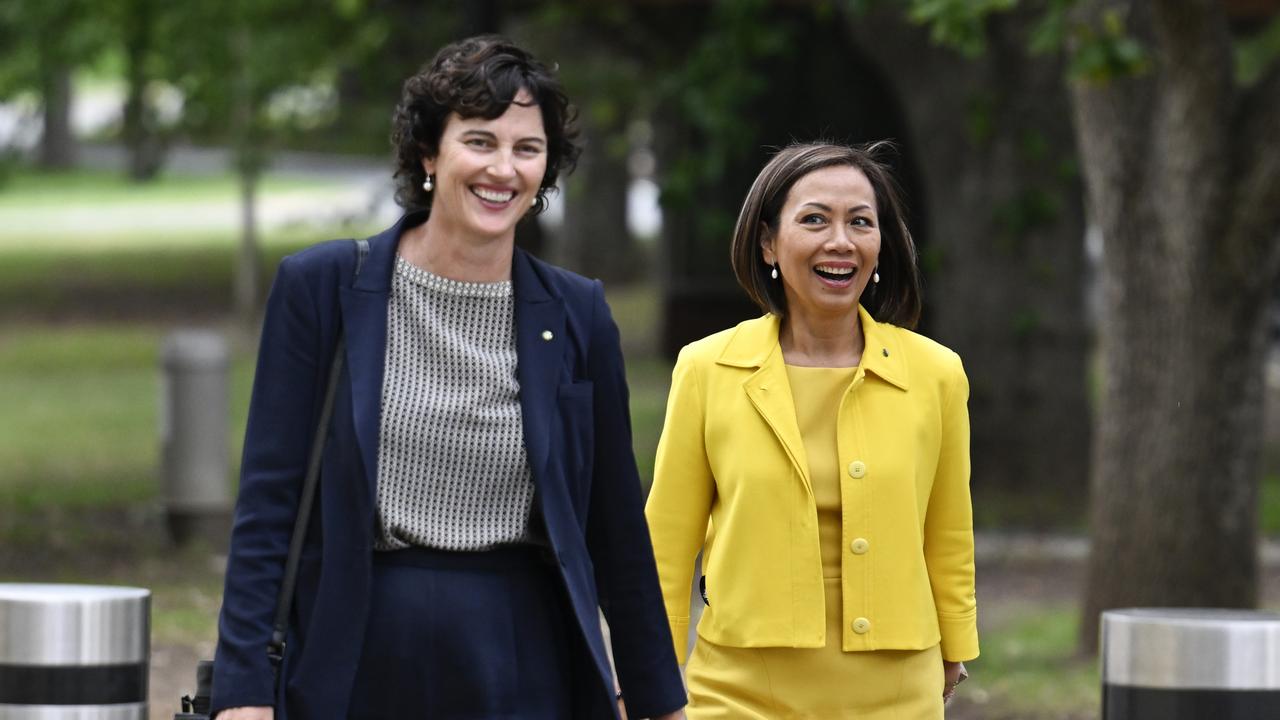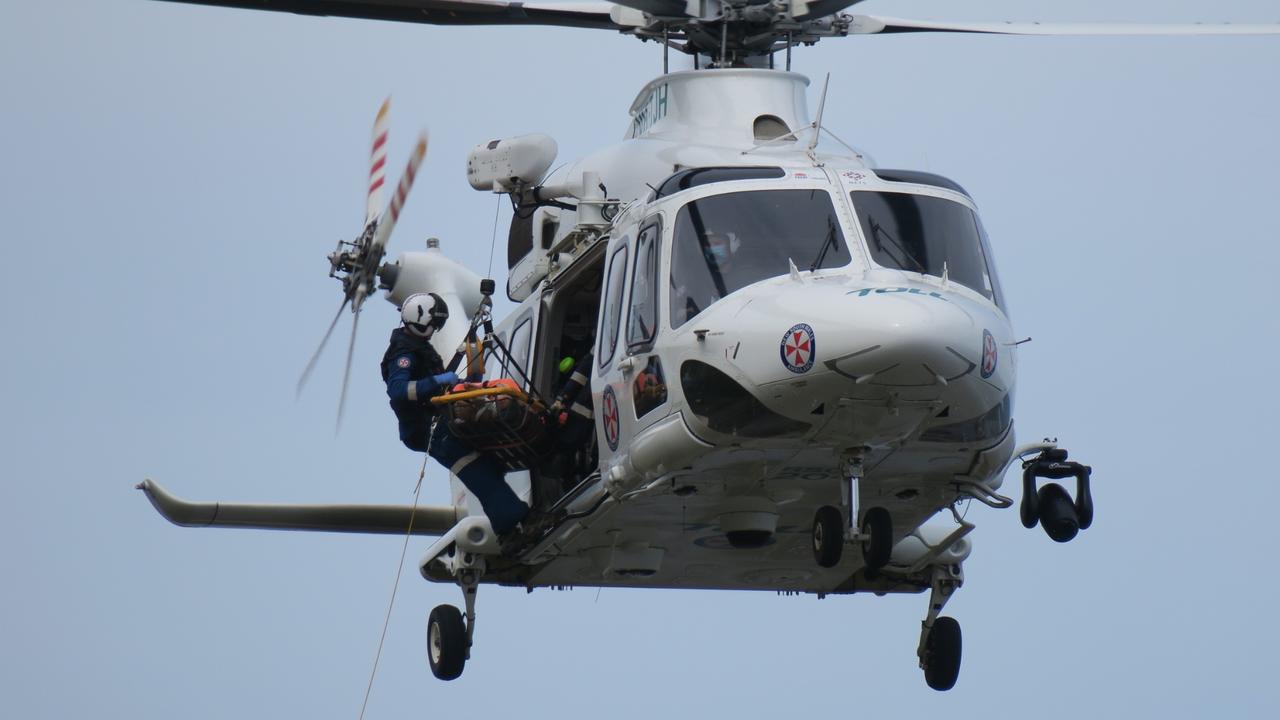Down syndrome athletes call for changes to enable them to compete at Paralympics
When you tune into the Paralympics Games, spare a thought for our athletes with Down syndrome who are excluded from competing due to a lack of appropriate classification to enable access.
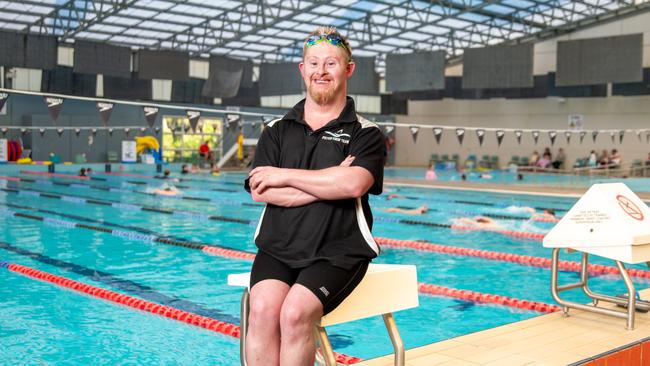
NSW
Don't miss out on the headlines from NSW. Followed categories will be added to My News.
When you tune into the Paralympics Games, take note of one very glaring omission –
athletes with Down syndrome.
Swimmer Taylor Hanson wants that changed.
“My next goal is to make the Olympics one day,” he told his mum Tracey after completing his swimming instructor qualification.
For Taylor — affectionately known by his students and his swim coach at Wollondilly Leisure Centre as Chip — exclusion of athletes with Down syndrome just doesn’t make sense.
Currently, athletes with Down syndrome can technically qualify under intellectual
disability categories, but that doesn’t account for the unique physical, functional and neurological biomarkers of the condition.
“That essentially leaves athletes with Down syndrome with no chance of qualifying against their peers who may have intellectual disability but no other physical impairments,” said Emily Caska, CEO of the Down syndrome Institute.
For swimmers with Down syndrome, there are S18 and S19 classifications at the local and national levels, yet the International Paralympic Committee is yet to adopt these classifications “for reasons that largely remain unknown”, Ms Caska said.
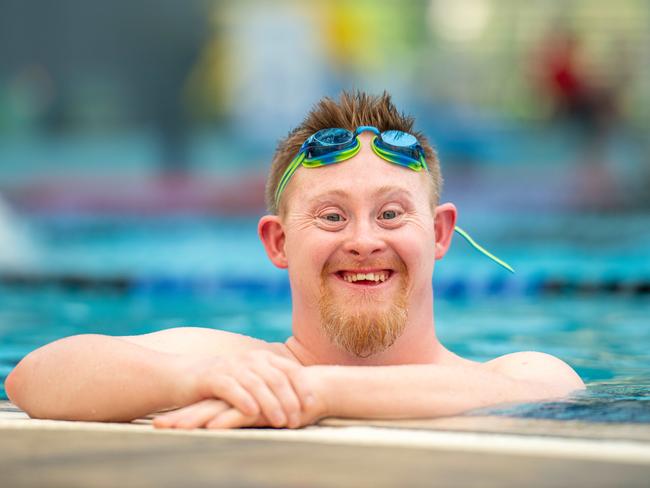
“Our loved ones with Down syndrome deserve to not only be represented at the Paralympics as athletes in their own right, but also serve as an example for athletes at all levels giving their all and an inspiration to many without disabilities to show what truly is possible,” she said.
“Whilst we warmly welcome and celebrate the Paralympics, it is a bittersweet event
for our community due to the exclusionary nature of the classifications system that
sees athletes with Down syndrome miss out — and so the broader Paralympic team miss out as do the Australian public by not having athletes with Down syndrome in their tapestry.”
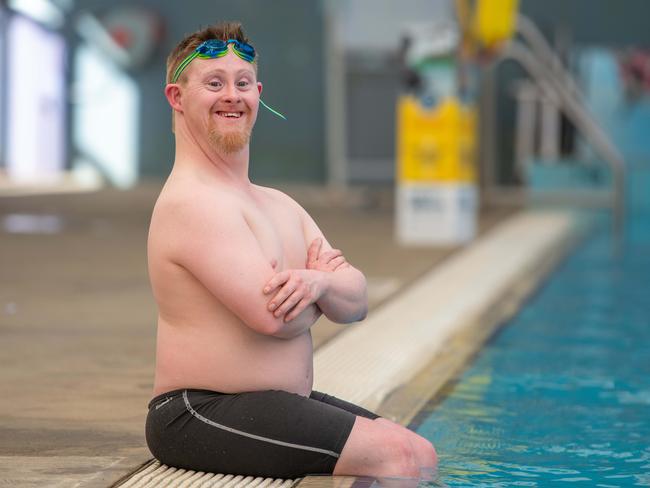
Ms Caska said it was “rather jarring and likely a surprise to many that the world’s most common genetic condition and most recognisable disability is not represented”.
“It should be the most inclusive sporting event on the world stage. This needs to
change.”
Federal NDIS Minister Bill Shorten has supported the call for change.
“Down syndrome is the most common genetic condition in the world and one of the most recognisable disabilities, yet is not included,” he said.
“It’s time to reconsider their absence from Paralympics.”
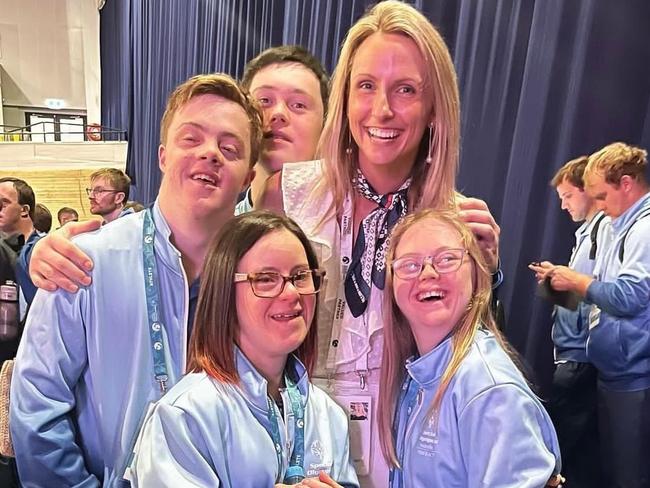
In the meantime, Taylor will continue to train hard and “dream big”.
“Now is the time for us with the older ones to fight for the generations coming after him,” his mum said.
Keiran Fisher, from Western Sydney, said he hoped one day his son Henry and friends could have the chance to compete in the Paralympics.
Deb Fitzalan, from Cairns, said individuals with Down syndrome were “amazing and strive to overcome their intellectual and physical disabilities.
“I would love to see them included in the Paralympics,” she said.
The Down syndrome Institute has launched a Change.org petition to garner support for their quest.
Do you have a story for The Daily Telegraph? Message 0481 056 618 or email tips@dailytelegraph.com.au



